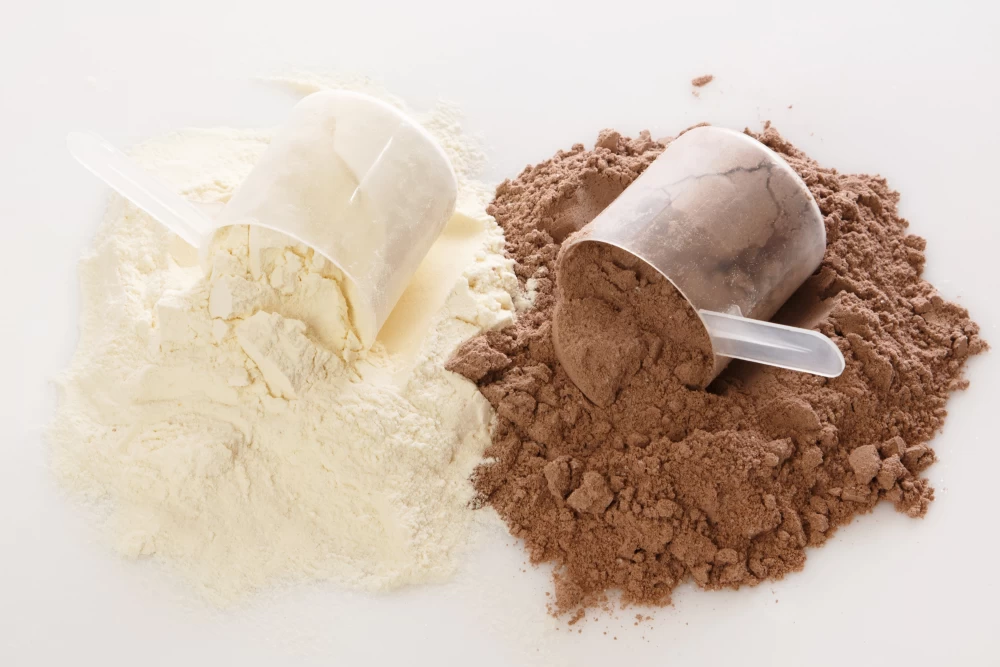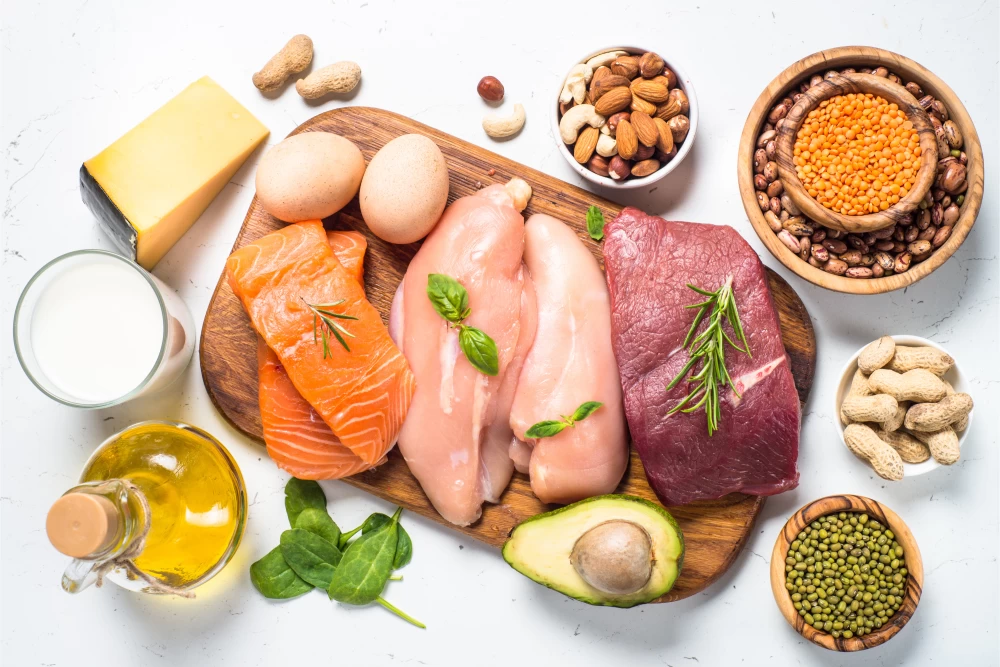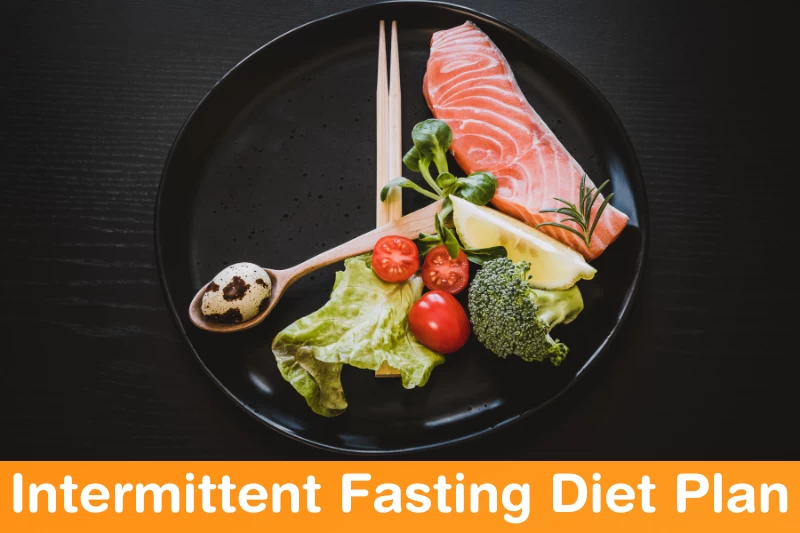
- 3rd May 2023
Table of Contents
Intermittent fasting entails what?
The practise of alternating periods of fasting and eating is known as intermittent fasting. The goal of intermittent fasting is to limit mealtimes rather than calories or food types. Intermittent fasting advocates eating within an 8-hour window each day and skipping meals for the remaining 16 hours. It is important to pay attention to the quality and quantity of protein consumed during eating periods in order to optimise protein intake during intermittent fasting. Maintaining muscle mass during prolonged fasting can be aided by eating high-quality proteins like lean meats, fish, eggs, legumes, and dairy products. Getting enough protein in during the short feeding window is just as important as eating high-quality proteins. To accomplish this, it is important to plan one's meals in advance and include protein sources into every meal and snack. Individuals can reap the benefits of intermittent fasting while still maintaining muscle mass and overall health by adhering to these guidelines for optimising protein intake.
To what end is protein so crucial?
Protein is an essential macronutrient that aids in cellular growth and repair, hormone and enzyme synthesis, bone and immune system health, and tissue maintenance and repair. Consuming sufficient protein to prevent muscle loss and promote fat loss is especially crucial during intermittent fasting. When we don't eat for a while, our bodies go through a process called gluconeogenesis, in which they convert glycogen stored in the liver into glucose. When the body doesn't get enough glucose from food or glycogen stores, it breaks down protein in muscles to get what it needs. Not getting enough protein during our feeding window can cause muscle loss. Lean meats, fish, eggs, dairy products, legumes, or plant-based options like tofu or tempeh are all excellent choices for protein during fasting because of their low-calorie density and high satiety value. To maximise muscle synthesis, it is also important to consume protein throughout the day rather than all at once. Finally, taking a branched-chain amino acid (BCAA) supplement before working out can prevent muscle loss while fasting.
The Various Forms of IF

The 16:8 method is a common form of intermittent fasting. The entire day's worth of food is consumed in just eight hours, followed by a fast lasting 16 hours. Fasting once every other day while maintaining a normal diet on non-fasting days is another option. The 5:2 diet involves restricting food intake to between 500 and 600 calories on two days of the week (non-consecutive) and then eating normally on the remaining five days. High-quality protein sources, such as eggs, lean meats, fish, legumes, nuts, and seeds, are optimal during intermittent fasting. You can also meet your protein needs during a fast by drinking a protein shake. It is also important to consume enough amino acids, which help preserve muscle mass, and to spread out your protein consumption throughout the day. In conclusion, people have many options for intermittent fasting to suit their individual needs and preferences in terms of diet and lifestyle. Some people may find it difficult to consume enough protein during this time; however, by concentrating on high-quality sources and spreading consumption out throughout the day, good outcomes can be attained.
Tips for Getting the Most Protein While You're Not Eating
The intermittent fasting diet consists of alternating periods of fasting and eating. Changes in insulin sensitivity and increased fat burning are just two of the ways fasting improves metabolic health. Muscle loss can be avoided during the feeding period if enough protein is consumed. Lean meats, fish, eggs, legumes, nuts, and seeds are all high-protein foods that can help you meet your daily protein needs while intermittent fasting. You can also increase your protein intake by drinking a protein shake before or after your workout. In addition, a great way to keep a calorie deficit while still meeting daily protein goals is to select nutrient-dense food sources that are low in calories but high in protein content. Greek yoghurt and cottage cheese with fruit toppings are two such examples, as are veggie omelettes stuffed with leafy greens and mushrooms. If you want to reap the full health benefits of intermittent fasting, you need to follow these guidelines to ensure you're getting enough protein.
Protein Powders and Other Supplements
When engaging in intermittent fasting, nutritional supplements and protein powders can be useful additions to the diet. In order to prevent muscle loss and preserve lean body mass during fasting, it is crucial to consume enough protein during the feeding window. Gaining more protein without breaking your fast or consuming too many calories is possible with the help of protein powders. It's important to note that not all protein powders are the same. Some of these can cause an insulin spike and thus break your fast because they contain added sugars or artificial sweeteners. Try to find protein powders that are both artificial ingredient-free and low in carbs. Intermittent fasting complements well with the use of whey protein isolate, casein, and collagen peptides. Supplements like branched-chain amino acids (BCAAs) and protein powders can both aid muscle growth while dieting. Muscle protein synthesis and breakdown are both sped up by BCAAs, an essential amino acid. They should be consumed either before or during a fasted workout to aid in the maintenance of lean muscle mass and the promotion of fat loss. Adding supplements and high-quality proteins to your intermittent fasting routine can boost your results and help you reach your health and fitness goals more quickly.

Scheduling and Menu Preparation
Timing and meal planning are important factors in maximising protein intake while engaging in intermittent fasting. In order to maximise muscle growth and repair during the feeding window, it is crucial to consume high-quality protein sources that cover all of your amino acid needs. Nutritional needs peak during exercise, so eating at those times can improve muscle protein synthesis. Spreading meals out throughout the day helps those on a time-restricted eating plan get the most out of their protein consumption without breaking their fast. You can do this by eating more at your first meal of the day or right after exercise, and by snacking or eating smaller meals in between your three main meals. Improving one's muscle mass and general health is possible while adhering to an intermittent fasting protocol by carefully timing and planning one's protein intake. Individuals can get help developing plans that are tailored to their goals and nutritional needs by meeting with a registered dietitian or nutritionist.














